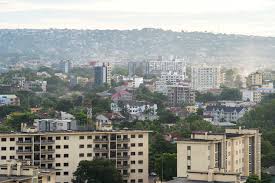The Democratic Republic of Congo canceled a $1.2 billion project to set up a national biometric ID system, months after a government watchdog warned of cost overruns and possible funding irregularities.
The contract — which would have seen French biometrics provider Idemia build a civil registry and print ID cards through an intermediary called Afritech — was annulled on Aug. 12, according to Richard Ilunga, the Director General of Congo’s National Office for Population Identification.
In an interview, Ilunga said that the project was abandoned following a meeting that day involving various government agencies and representatives from the Idemia-Afritech partnership, but, when pressed, he declined to give a reason for the contract’s cancellation.
The move came three days after Bloomberg News and Lighthouse Reports published an investigation highlighting allegations of financial mismanagement surrounding a series of failed ID projects in Congo, one of the 10 poorest countries in the world.
The World Bank had declined to contribute financing to the project because of the lack of a competitive tendering process. In 2023, civil servants in ONIP produced a confidential memo that was circulated internally and which was seen by Bloomberg News and Lighthouse. The memo highlighted “worrying elements” in the proposal from Idemia and Afritech, including “flagrant overpricing” and the risk that the contract would end up as an “enormous scam.”
In June this year, the Inspectorate General of Finance, a Congolese government watchdog, released the findings of an internal investigation that generated concerns about the project’s cost and found that the proposed financing mechanism for the system was “illegal or impossible.”
Shortly after the report was published, President Felix Tshisekedi issued a statement saying he wanted a thorough briefing on the contract from the Interior Minister. Afritech didn’t respond to questions about it, and Idemia said that it wasn’t a direct party to the contract with the government, and instead had a contract with Afritech.
Official government documents about the plan and a co-branded proposal submitted to ONIP and seen by Bloomberg and Lighthouse characterized the relationship between Idemia and Afritech as a “consortium.”
When reached for questioning about the project’s cancellation, Idemia confirmed that it had been called off and cited its contract with Afritech as the reason why it couldn’t answer questions about the project’s procurement or financing.
Samba Bathily, Afritech’s chief executive officer, didn’t respond to several requests for comment via WhatsApp, email and LinkedIn.
At $1.2 billion, the expected cost of Congo’s ID system and supporting infrastructure was more than three times ONIP’s original estimate. Had the deal been executed, it would have been one of the most expensive digital identity contracts in history.
Congo has no national ID system, making it harder for citizens to open bank accounts, secure official documents or register to vote.
Biometric identity systems capture unique attributes like fingerprints, faces and irises to track populations. They can make it easier for a government to administer public services and for businesses to provide access to bank accounts and loans. International agencies, including the United Nations, have hailed the technology as a means to unlock a wide range of benefits in places that lack civil registries.
Source:norvanreports.com

